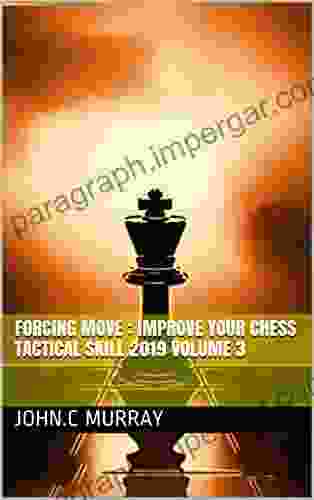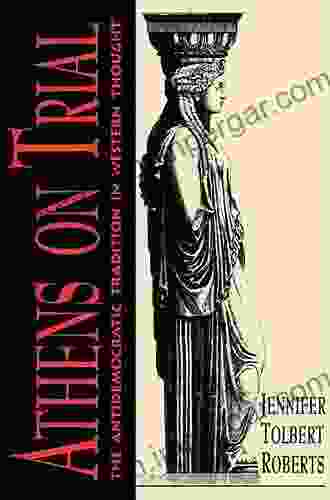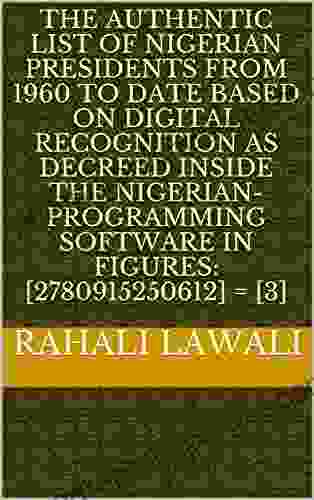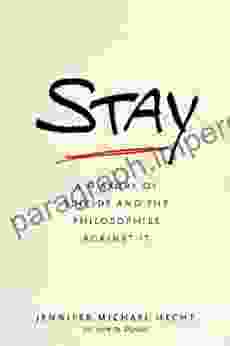The Antidemocratic Tradition in Western Thought: Unmasking Power and Control

5 out of 5
| Language | : | English |
| File size | : | 930 KB |
| Text-to-Speech | : | Enabled |
| Screen Reader | : | Supported |
| Enhanced typesetting | : | Enabled |
| Word Wise | : | Enabled |
| Print length | : | 428 pages |
| X-Ray for textbooks | : | Enabled |
Unveiling the Hidden Currents of Antidemocratic Thought
Throughout the annals of Western civilization, the concept of democracy has been hailed as a beacon of freedom and equality. Yet, beneath the surface of this cherished ideal lies a shadowy undercurrent—a persistent tradition of antidemocratic thought that has exerted a profound influence on the development of our societies.
In his groundbreaking work, "The Antidemocratic Tradition in Western Thought," renowned political philosopher Robert Kraynak delves deep into this hidden history, tracing its roots back to the dawn of Western thought. Through a comprehensive examination of the writings of seminal figures from Plato to Tocqueville, Kraynak uncovers a lineage of antidemocratic ideas that have shaped our understanding of power, control, and the nature of human governance.
The Roots of Antidemocratic Thought
Kraynak argues that the seeds of antidemocratic thought were sown in the philosophy of Plato, who held an elitist view of human nature. Plato believed that only an enlightened few possessed the wisdom and virtue necessary to rule, while the masses were susceptible to ignorance and demagoguery. This notion of an intellectual aristocracy has provided a philosophical foundation for antidemocratic systems throughout history.
Aristotle, another towering figure of ancient Greek thought, further developed Plato's ideas, arguing that some individuals were "by nature" slaves. This concept of natural inequality served to justify hierarchical societies and the domination of the weak by the strong. These early antidemocratic ideas provided a framework for the emergence of authoritarian and tyrannical regimes in the ancient world.
The Rise of Modern Antidemocratic Thought
During the Middle Ages and the Renaissance, antidemocratic thought took on new forms, often intertwined with religious and theological beliefs. The divine right of kings was used to justify the concentration of power in the hands of monarchs, while the concept of social hierarchy was reinforced by the teachings of the Church.
In the 16th and 17th centuries, as Europe emerged from the Middle Ages, a new wave of antidemocratic thought emerged. Niccolò Machiavelli, in his infamous work "The Prince," proposed that rulers should use any means necessary to maintain power, even if it meant employing deception and violence. Thomas Hobbes, in his treatise "Leviathan," argued that human beings were by nature selfish and needed to be ruled by an absolute sovereign. These ideas provided intellectual support for the rise of absolutism and the erosion of democratic ideals.
The Enlightenment and Antidemocratic Thought
The Enlightenment, a period marked by intellectual and scientific progress, also witnessed the emergence of antidemocratic currents. Jean-Jacques Rousseau, while advocating for popular sovereignty, argued that the masses could be misled by demagogues and needed to be guided by enlightened elites. David Hume, in his "History of England," expressed skepticism about the capacity of the common people to govern themselves.
These Enlightenment thinkers contributed to a complex and multifaceted understanding of democracy, which included both democratic and antidemocratic elements. While they recognized the importance of popular participation, they also worried about the potential for mob rule and the tyranny of the majority.
The Modern Era and Antidemocratic Ideologies
In the 19th and 20th centuries, antidemocratic ideologies took on new and more virulent forms. Friedrich Nietzsche's philosophy of the "Übermensch" (superman) provided a foundation for totalitarian regimes such as Nazism and Fascism. Alexis de Tocqueville, in his classic work "Democracy in America," warned of the dangers of "soft despotism," a form of tyranny that could arise in democratic societies through the erosion of individual freedoms.
Kraynak argues that the antidemocratic tradition has continued to exert its influence in modern times, manifesting in various forms of authoritarianism, populism, and the rise of surveillance states. He traces the lineage of this tradition through the writings of contemporary thinkers such as Leo Strauss, Carl Schmitt, and Michel Foucault.
The Importance of Understanding the Antidemocratic Tradition
Kraynak's "The Antidemocratic Tradition in Western Thought" is a profound and timely work that sheds light on the hidden forces that undermine our democratic ideals. By understanding the historical roots and philosophical foundations of antidemocratic thought, we can better recognize and resist its manifestations in our societies.
This book is essential reading for students of political science, history, philosophy, and anyone interested in the future of democracy. It is a sobering reminder that the struggle for a just and equitable society is an ongoing one, and that we must remain vigilant in defending our democratic institutions against the persistent currents of antidemocratic thought.
Free Download Your Copy Today!
Don't miss out on this groundbreaking work that unmasks the hidden history of antidemocratic thought. Free Download your copy of "The Antidemocratic Tradition in Western Thought" today and delve into the profound insights it offers into the nature of power and control.
5 out of 5
| Language | : | English |
| File size | : | 930 KB |
| Text-to-Speech | : | Enabled |
| Screen Reader | : | Supported |
| Enhanced typesetting | : | Enabled |
| Word Wise | : | Enabled |
| Print length | : | 428 pages |
| X-Ray for textbooks | : | Enabled |
Do you want to contribute by writing guest posts on this blog?
Please contact us and send us a resume of previous articles that you have written.
 Book
Book Novel
Novel Page
Page Chapter
Chapter Text
Text Story
Story Genre
Genre Reader
Reader Library
Library Paperback
Paperback E-book
E-book Magazine
Magazine Newspaper
Newspaper Paragraph
Paragraph Sentence
Sentence Bookmark
Bookmark Shelf
Shelf Glossary
Glossary Bibliography
Bibliography Foreword
Foreword Preface
Preface Synopsis
Synopsis Annotation
Annotation Footnote
Footnote Manuscript
Manuscript Scroll
Scroll Codex
Codex Tome
Tome Bestseller
Bestseller Classics
Classics Library card
Library card Narrative
Narrative Biography
Biography Autobiography
Autobiography Memoir
Memoir Reference
Reference Encyclopedia
Encyclopedia Jesse Hunt
Jesse Hunt Jessica Dulong
Jessica Dulong Jim Denning
Jim Denning Jeffrey Robert Young
Jeffrey Robert Young Joe Ryder
Joe Ryder Jerry Gay
Jerry Gay Jimmy Webb
Jimmy Webb Jennifer Louissa
Jennifer Louissa Jeffrey Michael
Jeffrey Michael Jeffrey A Robinson
Jeffrey A Robinson Jim Willis
Jim Willis Jina R Moon
Jina R Moon Jennifer K Levasseur
Jennifer K Levasseur Joey Kramer
Joey Kramer Jim Conlon
Jim Conlon Jeffrey Shandler
Jeffrey Shandler Jenn Bailey
Jenn Bailey Joe Perkins
Joe Perkins Jo Usmar
Jo Usmar Jenifer Jordan
Jenifer Jordan
Light bulbAdvertise smarter! Our strategic ad space ensures maximum exposure. Reserve your spot today!
 Adrien BlairFollow ·10.1k
Adrien BlairFollow ·10.1k Walter SimmonsFollow ·16.3k
Walter SimmonsFollow ·16.3k Dean ButlerFollow ·11.6k
Dean ButlerFollow ·11.6k Ashton ReedFollow ·14.8k
Ashton ReedFollow ·14.8k Winston HayesFollow ·7k
Winston HayesFollow ·7k Michael CrichtonFollow ·7.6k
Michael CrichtonFollow ·7.6k Patrick RothfussFollow ·4.7k
Patrick RothfussFollow ·4.7k Kevin TurnerFollow ·8.3k
Kevin TurnerFollow ·8.3k

 Christian Barnes
Christian BarnesUnleash Your Creativity: Build Interlocking 3D Animal and...
Discover the Art of Paper...

 Terry Bell
Terry BellUnveiling the Secrets of Winning: A Comprehensive Guide...
In the realm of chance and fortune, the...

 Albert Camus
Albert Camus101 Things That You Should Do Before Leaving The House In...
Starting your day right is...

 Anthony Burgess
Anthony BurgessForcing Move 2024 Volume: Unleash Your Inner Grandmaster
Embark on an extraordinary chess...
5 out of 5
| Language | : | English |
| File size | : | 930 KB |
| Text-to-Speech | : | Enabled |
| Screen Reader | : | Supported |
| Enhanced typesetting | : | Enabled |
| Word Wise | : | Enabled |
| Print length | : | 428 pages |
| X-Ray for textbooks | : | Enabled |
















